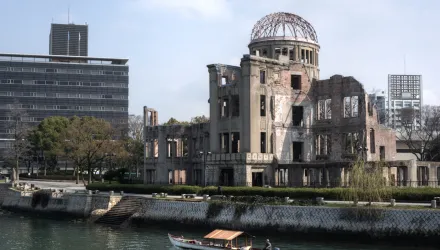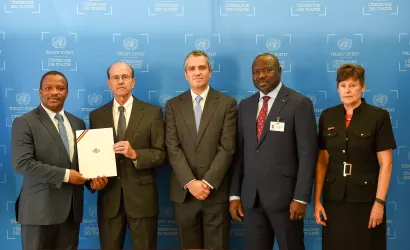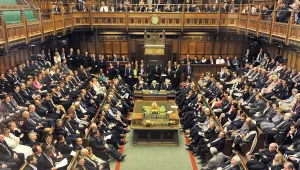Making the case for action against Iraq, President Bush has quoted what President John F. Kennedy said in October of 1962: "We no longer live in a world where only the actual firing of weapons represents a sufficient challenge to a nation's security to constitute maximum peril."
In thinking about Iraq, one of the president's closest advisers told The New York Times,"The example he refers to is the Cuban missile crisis." Says Secretary of Defense Donald Rumsfeld: "It is not a perfect, on all fours, analogy, but it is certainly as similar as anything in recent years that one can find."
As a longtime student of the missile crisis, I agree with Mr. Bush that the similarities between it and the current face-off with Iraq are more salient than the differences. What's uncertain in the current crisis, however, is whether Bush will grasp and apply what Kennedy judged the most significant lesson of the missile crisis.
Initially, Bush found the missile crisis analogy helpful in thinking about preventive action before an adversary fired the first shot.
"In his mind, it's got that kind of urgency," the adviser noted.
Like Kennedy before him, Bush has taken the initiative in confronting an adversary to demand elimination of actions he deems unacceptable.
Then, the threat was Soviet missiles in Cuba; today, it is Iraq's continued buildup of weapons of mass destruction (WMD).
To eliminate the threat, each president asserted unambiguously American readiness to use overwhelming force, should that prove necessary.
Moreover, both assembled overwhelming military force to make vivid the fact that the adversary had no alternative.
In both cases, the presidents' and their advisers' initial choice was a military attack. Yet here, a potential difference emerges. In 1962, JFK paused to reconsider, concluding upon reflection that his first answer was not the best answer. Probing his advisers about likely Soviet responses, US countermoves, and subsequent third and fourth steps in this deadly chess game, Kennedy stimulated a decisionmaking process that invented additional options short of war.
How should we interpret Bush's insistence that he has not yet made up his mind about military action? While many discount this as political rhetoric, if Bush presses his point, his advisers will discover additional options. White House spokesman Ari Fleischer has spoken recently about some Iraqi putting a "single bullet" in Saddam Hussein's head; more recently, Mr. Rumsfeld suggested that Hussein and his family seek sanctuary elsewhere. In the end, to achieve the minimum he judged essential for national security, JFK felt condemned to choose among unacceptable alternatives. Forty years ago this month the Soviets had completed construction of their sites and readied nuclear-capable missiles for firing. At that point, Kennedy could accept a fact he'd pronounced unacceptable - or authorize an attack that could trigger a launch of nuclear warheads against US cities.
Similarly, Bush's options today range from bad to worse. After the UN Security Council authorizes intrusive inspections and Hussein stiffs the inspectors, he can order a US attack on Iraq that his own best intelligence analysts predict could trigger a bioweapons reprisal against Americans. Or he can retreat to less forceful action that allows Hussein to continue expanding his WMD capabilities and undermines Bush's credibility.
At his dead end, Kennedy personally refused to choose from the menu his advisers had prepared. Over their strong objections, he invented an extraordinary concoction consisting of a public deal (withdrawal of missiles for a pledge not to invade Cuba) spiced by a private ultimatum (24 hours or else the US would eliminate the missiles) and sweetened by a secret concession (withdrawal of US missiles from Turkey within six months).
Having felt in his gut the dangers of a counterattack that could mean death for millions, JFK drew a cardinal lesson: Where the consequences could be catastrophic, never force an adversary to choose between humiliating retreat and war. Before today's confrontation ends, this may prove the most valuable lesson of the missile crisis for Bush.
Allison, Graham. “Is Iraq like the Cuba Crisis? It's Worth Bush Considering.” Christian Science Monitor, October 31, 2002





